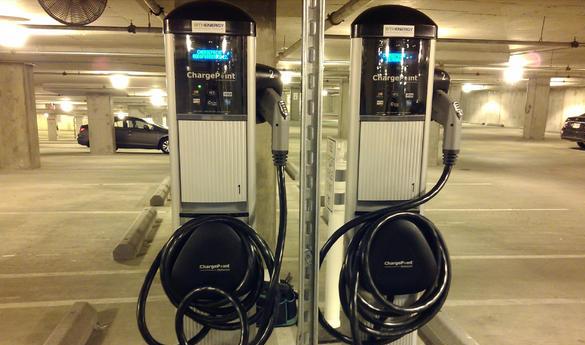GMU transportation makes changes to meet increased ridership
The George Mason University transportation office has made some recent changes to its service in order to accommodate an increase in riders.
The office expanded its Mason to Metro shuttle services and added eight charging stations for electric cars around the Fairfax and Arlington campuses.
The new shuttle services, which began at the start of the semester, provide Mason students with metro access from 8 a.m. on Saturdays and Sundays to 3 a.m. the following day. The Metro Express route, which takes students directly to the Vienna metro station during the week, added a second bus at the Rappahannock Bus Station to reduce wait times to a 30 minute maximum. The shuttle service to Prince William campus has also been increased between Mondays and Thursdays, with a new weekend service from 8 a.m. to 7 p.m.
Parking & Transportation Director Josh Cantor said the bus schedule revisions are based on a careful study of ridership rates, information they used to apply for an expanded budget.
“The majority of the costs are paid by student fees, which are supplemented by parking revenue,” Cantor said. “This year, subsidies to the Cue bus rose from $540,000 to $720,000, and we required an additional $250,000 for the other bus services.”
New electric car ports were installed at each parking deck on the Fairfax and Arlington Campuses on Sept. 25. The ports are expected to be activated in the first week of October.
The terminals are provided by Charge Point America, a program sponsored by Coulomb Technologies and funded by the American Recovery and Reinvestment Act through the Department of Energy.
The primary costs of the project were the installation of the stations, and cement paths leading up to them, totaling $12,000.
While the Mason campus only has three registered electric vehicles, Cantor says his department is trying to provide infrastructure for a future more focused on electric cars.

